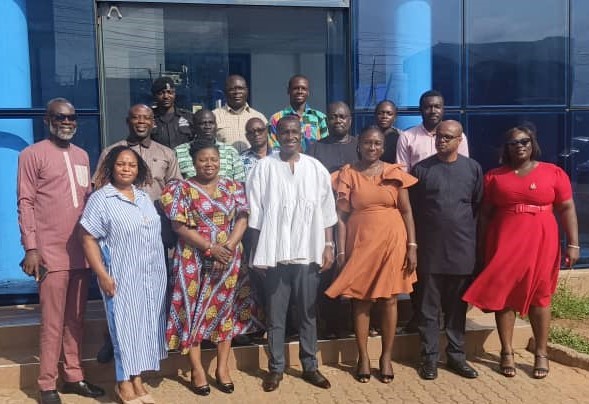
The Births and Deaths Registry (BDR) is emerging as a critical focus of Ghana’s broader public sector reform efforts, following a strategic visit by the Minister of State in charge of Public Sector Reforms, Hon. Lydia Lamisi Akanvariba.
During her working tour of the Registry’s head office in Accra, the Minister emphasized that accurate civil registration is not only essential to national planning but also foundational to inclusive governance and public accountability.
“Our goal is not just to evaluate what’s working, but to unlock what more can be done,” Hon. Akanvariba said. “A reliable birth and death registry is the backbone of any modern state. It shapes everything from education to healthcare and infrastructure planning.”
The Minister’s visit comes at a time when the Registry is undergoing transformation under the Public Sector Reform for Results Project (PSRRP), which seeks to modernize essential public institutions. While she acknowledged the Registry’s progress in digitization and citizen engagement since 2019, she also called for bold and targeted reforms to scale up impact.
Among the priority areas she identified were innovations in death notification systems, integration of cemetery monitoring into registration processes, and leveraging hospitals and community health networks — especially in under-registered Muslim-majority areas — to improve coverage.
The Minister advocated for empowering midwives to assign digital identification numbers at birth, enabling real-time population data updates. “Let’s move toward a system where every child is instantly recorded into our national database — no delays, no gaps,” she said.
Hon. Akanvariba also made a passionate appeal to development partners to support the next phase of the reform project, stressing the Registry’s logistical and training needs. “This is an investment in policy precision. When we know who’s born and who’s passed, we govern better,” she added.
The Acting Registrar, Mr. Samuel Adom Botchway, described the Minister’s visit as a vote of confidence in the Registry’s work. He praised staff resilience and reaffirmed their readiness to drive reform, despite operational challenges.
Project Head Mr. Emmanuel Nortey Botchway gave a snapshot of current interventions, including a centralized digital database, district-level deployments in 261 areas, and community engagement through partnerships with religious and traditional leaders. He said the Registry had begun harmonizing maternal and child health records to close long-standing registration gaps.
Mr. Botchway noted that the agency had gone beyond internal reforms by forging memoranda of understanding with faith-based institutions which is yet to be signed, thereby decentralizing civil registration and encouraging greater compliance at the grassroots.
However, he cautioned that sustaining momentum would require continued investment in staff training, public awareness, and advocacy campaigns.
Hon. Akanvariba concluded her visit by reaffirming government’s support and called on all stakeholders to collaborate more closely. “This is not just a registry — it’s a national asset. Let’s treat it as such,” she said.
The visit marks a renewed sense of urgency and direction for the Births and Deaths Registry, placing it squarely at the heart of Ghana’s ambitions for data-driven governance.
By: Prosper AGBENYEGA

